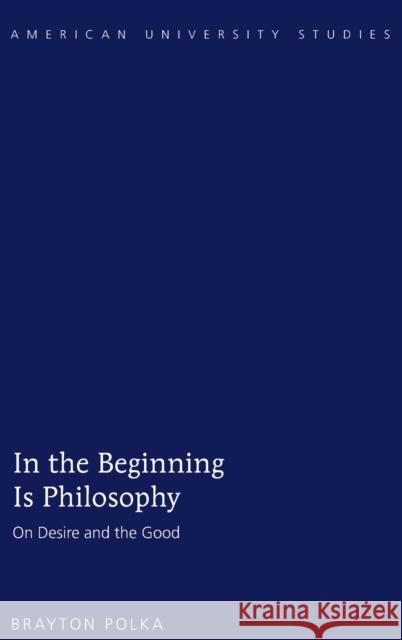In the Beginning Is Philosophy: On Desire and the Good » książka
In the Beginning Is Philosophy: On Desire and the Good
ISBN-13: 9781433133688 / Angielski / Twarda / 2016 / 276 str.
Philosophy, when understood to embody the values that are fundamental to modernity, is biblical in origin, both historically and ontologically. Central to this idea is the question famously posed by Tertullian: What does Athens have to do with Jerusalem? The answer as based on a comprehensive and systematic discussion of the key texts and ideas of Spinoza, Vico, Rousseau, Kant, Hegel, Kierkegaard, and Nietzsche is that we can overcome the conventional opposition between reason and faith, between philosophy and theology, and between the secular and the religious only if we learn to see that, as Spinoza shows us, both philosophy (reason) and theology (faith) are based on caritas: love on the divine command to do unto others what you want others to do unto you. Provided throughout is a commentary on how fundamentally different philosophy is in the Greek and in the biblical traditions (in Athens and in Jerusalem). Whereas Socrates argues that (human) desire and the (divine) good are contradictory opposites, Spinoza shows that it is human desire that truly constitutes the divine good of all.
This book would be indispensable to courses (both undergraduate and graduate) in philosophy, religious studies, and the history of ideas in interdisciplinary courses in the humanities, generally that focus on the values that are central, both historically and ontologically, to modernity."











